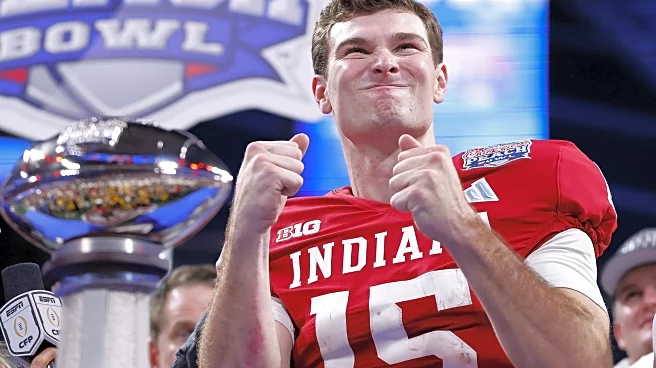What's Happening?
Tatiana Schlossberg, granddaughter of John F. Kennedy, has publicly disclosed her terminal cancer diagnosis. In an essay published in 'The New Yorker,' Schlossberg revealed that she was diagnosed with
acute myeloid leukemia in May 2024, shortly after the birth of her second child. The condition, which is rare for someone her age, has led to multiple rounds of chemotherapy and two stem cell transplants. Despite these treatments, her doctor has indicated that she may have about a year to live. Schlossberg's essay was published on the 62nd anniversary of her grandfather's assassination. She also criticized her cousin, Robert F. Kennedy Jr., the U.S. Health and Human Services Secretary, for policies she believes could negatively impact cancer patients. Specifically, she pointed out his decision to cut funding for mRNA vaccine research, which has potential applications in cancer treatment.
Why It's Important?
This revelation highlights the personal impact of public health policies on individuals and families. Schlossberg's criticism of RFK Jr.'s policy decisions underscores the ongoing debate about funding and research priorities in the U.S. healthcare system. The reduction in funding for mRNA vaccine research, as mentioned by Schlossberg, could have broader implications for cancer treatment advancements. Her story also brings attention to the emotional and familial challenges faced by those with terminal illnesses, emphasizing the need for compassionate healthcare policies that support both patients and their families. The public nature of her disclosure may influence public opinion and policy discussions regarding healthcare funding and research priorities.
What's Next?
As Schlossberg continues her treatment, her story may prompt further scrutiny of RFK Jr.'s policies and their impact on healthcare research. There could be increased advocacy for restoring or increasing funding for mRNA research, given its potential benefits for cancer treatment. Additionally, Schlossberg's public disclosure may inspire other patients and families to share their experiences, potentially influencing public and legislative support for healthcare reforms. The Kennedy family's historical influence in American politics may also play a role in shaping the conversation around these issues.











